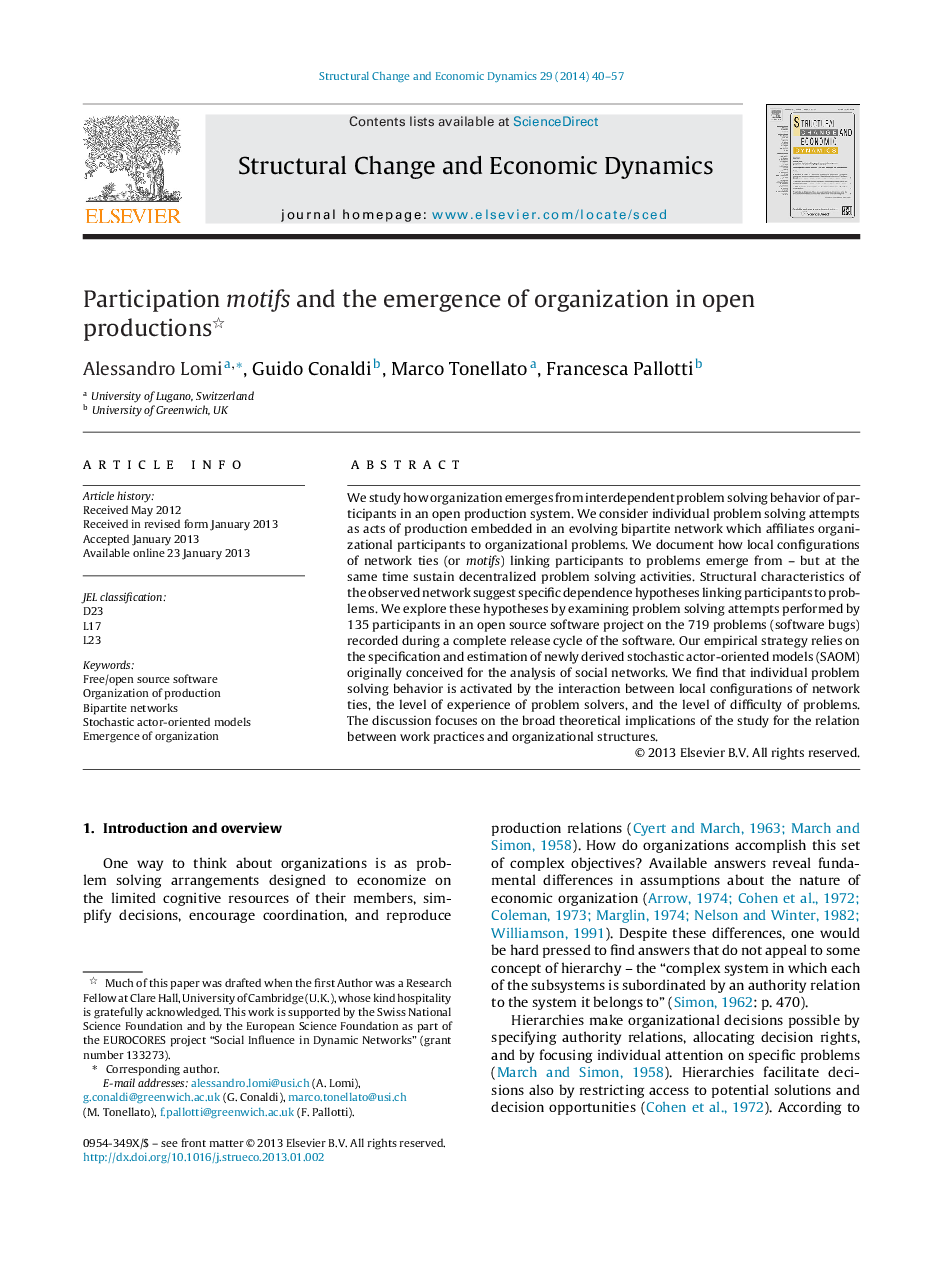| Article ID | Journal | Published Year | Pages | File Type |
|---|---|---|---|---|
| 986906 | Structural Change and Economic Dynamics | 2014 | 18 Pages |
We study how organization emerges from interdependent problem solving behavior of participants in an open production system. We consider individual problem solving attempts as acts of production embedded in an evolving bipartite network which affiliates organizational participants to organizational problems. We document how local configurations of network ties (or motifs) linking participants to problems emerge from – but at the same time sustain decentralized problem solving activities. Structural characteristics of the observed network suggest specific dependence hypotheses linking participants to problems. We explore these hypotheses by examining problem solving attempts performed by 135 participants in an open source software project on the 719 problems (software bugs) recorded during a complete release cycle of the software. Our empirical strategy relies on the specification and estimation of newly derived stochastic actor-oriented models (SAOM) originally conceived for the analysis of social networks. We find that individual problem solving behavior is activated by the interaction between local configurations of network ties, the level of experience of problem solvers, and the level of difficulty of problems. The discussion focuses on the broad theoretical implications of the study for the relation between work practices and organizational structures.
► Organization of open productions emerges from individual problem solving attempts. ► Individual action is embedded in bipartite networks linking individuals to problems. ► Collaborative problem solving is enabled and sustained by network-based processes. ► Decentralized problem solving induces self-organizing configurations of network ties. ► Empirical evidence from a study of an open source software project is presented.
